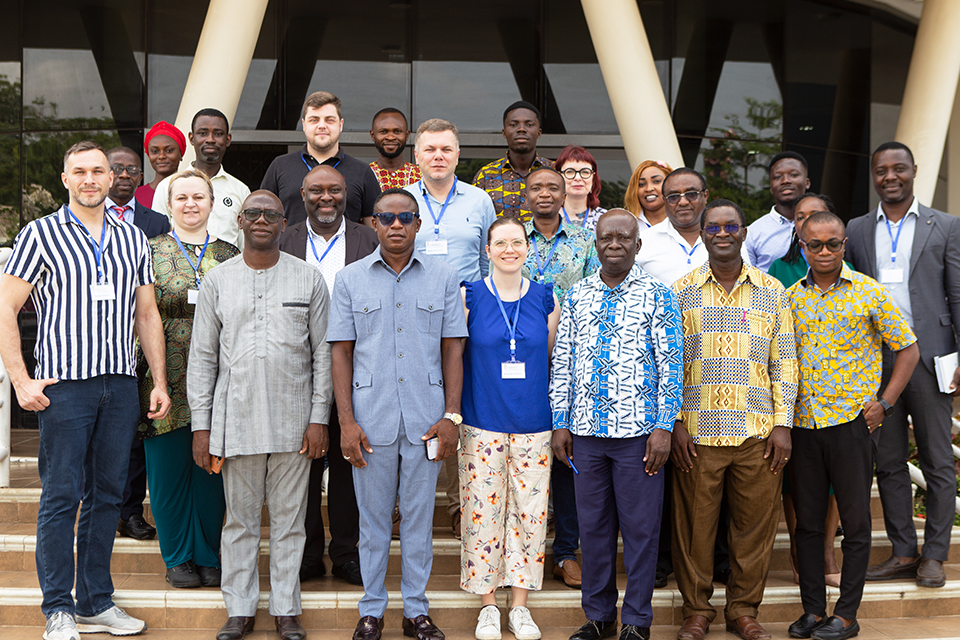UEW Launches Regenerative Agriculture Training for Young Farmers

To promote sustainable farming practices and empower the next generation of agricultural leaders, the University of Education, Winneba (UEW) launched an intensive three-day training programme on regenerative agriculture for young farmers in the Effutu municipality.
Designed to equip young farmers with essential skills and knowledge, the initiative aligns with global efforts to enhance food security and combat climate change through sustainable farming techniques and practices. The project involves developing a specialised regenerative agricultural curriculum, tailored to European and Sub-Saharan African contexts.

Held at the Students Centre Seminar Room II, North Campus, UEW, the workshop introduced 30 young farmers to the Vocational Education and Training Curriculum. This curriculum is a roadmap for young farmers to implement eco-friendly farming methods that restore soil health, increase biodiversity, and reduce reliance on synthetic chemicals.
During the workshop, participants engaged in hands-on training sessions covering critical modules such as climate-smart farming techniques, soil health for beginners, water and pests on the farm, and starting a regenerative farm. Experts, Dr. Kwabena Kyere and Dr. Bright Ankudze, also conducted interactive discussions about climate change impacts on African agriculture, accessing climate information and resources, managing water on the farm, dealing with pests naturally, and keeping the crops healthy.

Dr. Charles Koomson, Head of the Department of Integrated Science Education and the National Regenerative Agriculture for Vocational Education (REVIVER) Project Manager at UEW, explained that the programme focuses on critical areas. "We have developed a comprehensive curriculum covering water management, natural pest control, climate-resilient farming and soil conservation. The pilot training marks the beginning of a nationwide initiative. Upon successful completion, the programme will expand to various regions," he said.
Dr. Koomson underscored the significance of adopting innovative farming methods. "I expect that farmers will wholeheartedly accept these practices and implement them to transform farming in Ghana," he stated.

Opening the training on behalf of UEW Management on Tuesday, 19th November, 2024, Prof. Arkoful Sam, Vice-Dean of the Faculty of Science Education, highlighted the REVIVER project’s focus on establishing a dynamic interregional network of stakeholders to enhance knowledge and skills in regenerative agriculture.
Prof. Sam emphasised the project's significance: "This initiative represents a powerful step forward in advancing farming, supporting farmers and building agricultural resilience. The REVIVER Project is expected to contribute to healthier ecosystems, improved livelihoods and a sustainable food system, benefiting future generations,” he asserted.
The initiative is part of UEW’s broader commitment to enhancing educational opportunities and fostering innovation in the agricultural sector. In prioritising regenerative agriculture, the programme aims to nurture a new wave of environmentally conscious and economically empowered farmers.
As the effects of climate change become more pronounced globally, initiatives like UEW’s REVIVER project are crucial in building a sustainable and resilient future for agriculture in Africa. The programme is expected to be expanded to reach a larger audience, creating a ripple effect that will inspire more young individuals to embrace sustainable farming practices.









